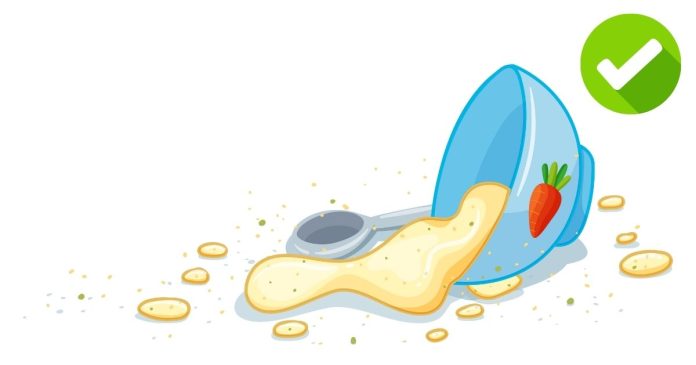It seems you are requesting a detailed explanation of spillage. Without further clarification, I will provide a general explanation of spillage, covering different contexts in which the term might apply.:
What is Spillage?
Spillage refers to the unintended release or overflow of a substance, typically liquids or solids, from a container, surface, or system. This can happen due to accidents, mismanagement, or environmental factors, and it is often associated with hazardous materials or substances.
Common Contexts of Spillage
- Environmental Spillage:
- Description: Spillage can occur when hazardous or toxic materials (like oil, chemicals, or wastewater) spill into the environment. This could result in soil, water, and air contamination, leading to potential harm to wildlife, plants, and human health.
- Example: An oil spill in the ocean is a typical environmental spillage example, where large amounts of petroleum are released into marine environments, harming aquatic ecosystems.
- Industrial Spillage:
- Description: In industries like manufacturing, chemicals, or food processing, spillage occurs when materials are accidentally released during production, transportation, or storage.
- Example: In a chemical plant, a valve malfunction might lead to the spillage of hazardous chemicals, posing risks to workers, machinery, and the surrounding environment.
- Workplace Spillage:
- Description: Spillage in workplaces often refers to the accidental release of liquids or solids, such as cleaning agents, oils, or other substances. This could create slipping hazards, cleanliness issues, or fire risks.
- Example: Spilling oil on the factory floor could create safety hazards for workers and also require costly cleanup measures.
- Spillage in Transportation:
- Description: This is commonly seen in transportation sectors, especially when hazardous substances are being moved in large containers (e.g., oil tankers or chemical trucks). Spillage can happen due to accidents, improper handling, or container malfunctions.
- Example: A truck transporting chemicals might spill its contents on a highway, creating a dangerous road hazard and requiring emergency response teams.
Key Concerns with Spillage
- Health and Safety Risks:
- Toxicity: Chemicals and other hazardous substances pose serious health risks if they come into contact with the skin, are inhaled, or are ingested.
- Fire or Explosion: Flammable materials (like oil or gas) can ignite if spilled near a heat source or spark.
- Slips and Falls: Spilled liquids, especially in workplace settings, can cause employees to slip and fall, leading to injuries.
- Environmental Impact:
- Water Contamination: Chemicals and oils that spill into water sources can contaminate rivers, lakes, and oceans, threatening aquatic life and the safety of drinking water.
- Soil Contamination: Spillage can lead to long-term soil damage, affecting plant growth and causing potential harm to wildlife that comes into contact with the soil.
- Economic Consequences:
- Cleanup Costs: Spills often require costly cleanup efforts, especially in the case of hazardous chemicals or large oil spills.
- Legal and Regulatory Fines: Spillage of hazardous materials can lead to legal consequences, fines, or lawsuits if proper safety protocols and regulations were not followed.
- Loss of Resources: Spilled materials may be wasted, especially in manufacturing or transport, leading to financial losses.
Types of Materials Often Involved in Spillage
- Chemicals:
- Industrial and manufacturing chemicals that can be toxic, corrosive, or flammable.
- Oil and Petroleum Products:
- Crude oil, gasoline, diesel, or lubricants that pose environmental and health risks.
- Food Products:
- In the food industry, products like milk, juices, or liquids can spill and affect operations or lead to contamination.
- Wastewater and Sewage:
- Spills from sewage systems or wastewater treatment plants can lead to health risks and environmental contamination.
- Hazardous Waste:
- Materials that are deemed hazardous under environmental laws, including radioactive, toxic, or corrosive substances.
Prevention and Mitigation Measures
- Spill Containment:
- Barriers: Using physical barriers like dikes or walls to prevent the spread of spills.
- Absorbents: Materials like pads or powders that soak up liquids, particularly useful for oil or chemical spills.
- Safety Protocols:
- Training: Workers should be trained in spill response procedures to quickly contain and clean up spills.
- PPE (Personal Protective Equipment): Workers handling hazardous substances should wear appropriate protective gear like gloves, goggles, or respirators.
- Technology and Equipment:
- Spill Kits: Special kits containing tools and materials for cleaning up a spill, including absorbents, gloves, and containment barriers.
- Safety Sensors: Installing sensors to detect spills in industrial settings, helping to trigger alarms and automatic containment systems.
- Regulations and Standards:
- Regulatory Bodies: Agencies like the EPA (Environmental Protection Agency) in the U.S. or OSHA (Occupational Safety and Health Administration) provide regulations to prevent and respond to spills.
- Spill Response Plans: Companies often need to have formal spill response plans to manage potential incidents efficiently.
Conclusion
Spillage is a serious concern in various contexts, whether in the environment, industrial settings, or workplaces. It can have substantial health, safety, economic, and environmental impacts. Effective prevention, response, and mitigation measures are crucial to minimizing these risks and ensuring compliance with regulatory standards.



